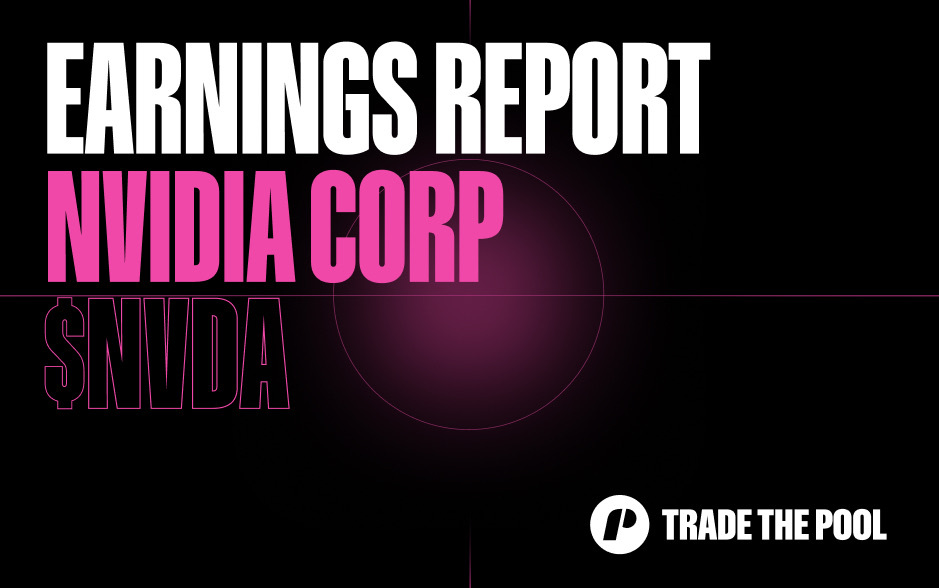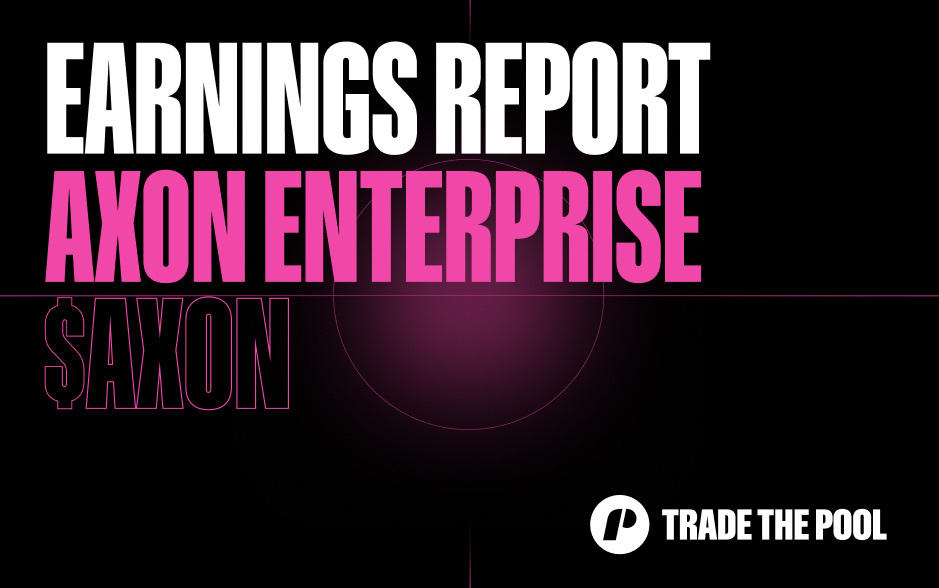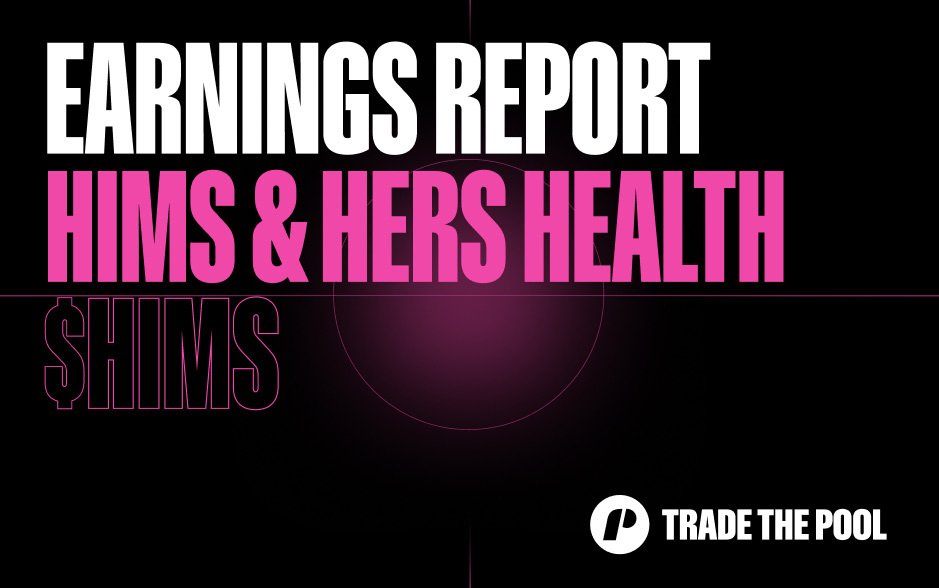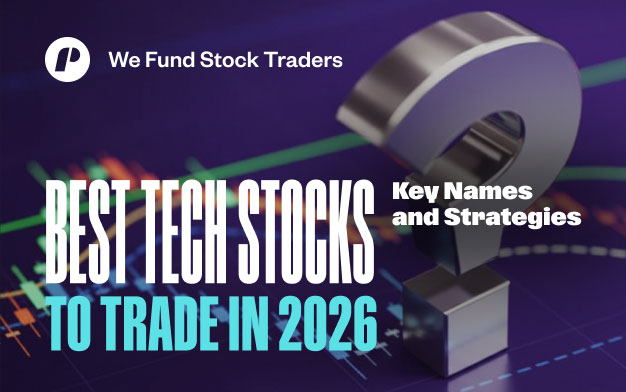
Introduction
The incredible rise of technology during the last few decades – and the last few years in particular – has transformed not only every industry and every sector of the stock market but also the way people trade and invest in them.
Retail trading platforms are among the most evident aspects of the transformation and innovation that technology has brought forward.
Now, with virtually all the old barriers removed, expert traders and investors, learners, amateurs – as well as any average Joe – can take advantage and profit from the market by buying and selling all sorts of financial instruments in real-time and from the comfort of their homes. How is that for a positive change?
Retail brokers, on their part, have themselves made the best use of technology to constantly improve their services and their platforms. For example, Information and tools that, until not long ago, only large institutions could afford are now immediately available at the click of a button. However, not all platforms are created equal and, If you are at the start of your trading journey and have a large enough capital to invest, you will probably want to get yourself a trusted broker that caters to your specific trading style and strategy and accompanying that with a platform that suits your needs.
Understanding the differences, as well as the pros and cons of each stock trading platform is essential for optimizing your trading strategy.
In this article, we’ll schematically review the pros and cons of five of the most popular online stock trading platforms to discover their benefits and drawbacks and help you make an informed choice.
Key Notes
When choosing a broker and an online trading platform, pay special attention to:
- The instruments the broker offers for trading.
- The broker’s costs, fees, commissions, and spreads.
- The complexity of the broker’s trading platform and its features.
- Users review and feedback.
How do E*Trade, TD Ameritrade, Robin Hood, Charles Schwab, and Fidelity Investment compare?
E*TRADE
E*Trade is an online brokerage platform that offers a great range of tools for trading stocks, options, and ETFs.
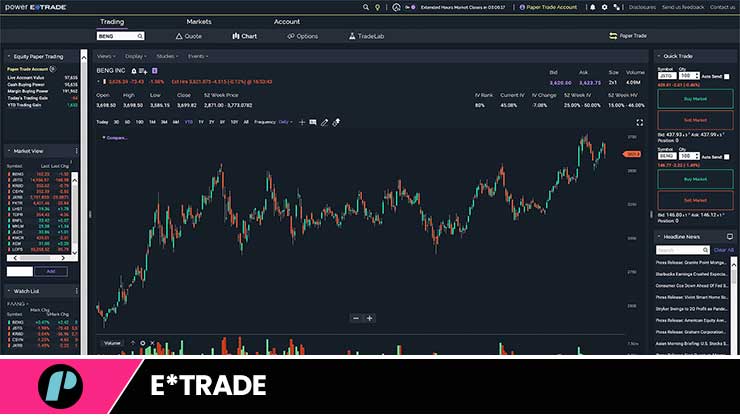
According to the firm, its user-friendly interface, advanced trading features, and educational resources make its trading platform suitable for both beginners and experienced investors.
Pros:
- Comprehensive Trading Tools:
E*TRADE offers a variety of research and analysis tools, including advanced charting features, which help traders make informed decisions. - Educational Resources:
The platform provides educational materials, including videos and articles, which can be extremely valuable for beginners learning to stock trade. - User-Friendly Interface:
E*TRADE’s platforms (both for desktop and mobile) are designed with users in mind, making navigation and trading extremely easy.
Cons:
- High Options Trading Costs:
While stock trades are commission-free, options trades incur fees, which may deter day traders and, even more so, high-frequency traders. - Account Maintenance Fees:
Low-balance accounts may be subject to maintenance fees, making them less attractive for new traders with limited capital. - Limited Customer Support:
Although support is available, some users complain of long wait times, particularly with online chat options.
TD AMERITRADE
TD Ameritrade is an online broker that offers a wide array of investment options, including stocks, bonds, ETFs, and mutual funds.
TD Ameritrade is known for its high-quality trading platforms and educational resources.
The firm says it strives to cater to traders of all experience levels with its powerful research tools.
Pros:
- Advanced Trading Platform:
TD Ameritrade’s “thinkorswim” platform is packed with features tailored for experienced traders, including more complex options trading capabilities and market analysis tools. - No Commission Fees:
The platform has removed commission fees for stock and ETF trades, making it cost-effective for active traders. - Strong Research Offerings:
TD Ameritrade excels in its market research capabilities, providing a range of tools and analyst ratings to better guide both traders and investors.
Cons:
- Complex for Beginners:
The extensive features available can be overwhelming for new traders who may find the learning curve a little too steep. - Higher Margin Rates:
For traders who plan on using margin, TD Ameritrade’s rates are quite far from being the most competitive. - Limited Mobile Functionality:
Some advanced features available on desktop are not fully mirrored in the mobile app, which could make on-the-go trading complicated (not that we’d encourage much of that).
Robinhood
Robinhood is a commission-free trading app that has revolutionized retail stock trading in the US.
It offers a simple interface for buying and selling stocks and cryptocurrency with no account minimums, making investing accessible to a much broader audience.
Pros:
- Zero Commission Trading:
Robinhood is mostly known for its no-fee trading model, allowing users to trade stocks without worrying about commissions eating into their profits. - Simple App Design:
The platform is designed for ease of use, catering especially to younger traders and those new to stock investing. - Instant Access to Funds:
Robinhood allows for instant deposits, allowing traders to start investing from “minute one” without waiting for funds to clear.
Cons:
- Limited Investment Options:
Unlike more traditional platforms, Robinhood does not offer mutual funds or bonds, limiting users to stocks, ETFs, and options. - Lack of Research Tool:
Robinhood’s research features are minimal compared to competitors and this forces traders to gather the necessary information and tools elsewhere. - Customer Support Issues:
Users have often told of being left frustrated with limited customer support options and long wait times when issues arise.
Charles Schwab
Charles Schwab is one of the most well-established brokers and provides a diverse range of investment services, including stock and ETF trading, retirement accounts, and wealth management.
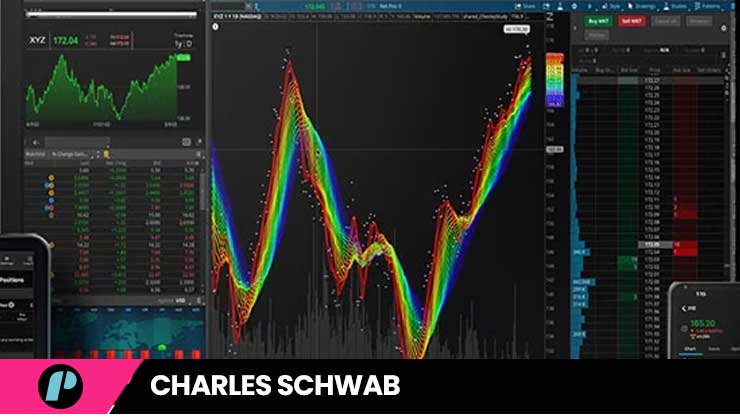
Of course. Charles Schwab also offers low-cost trading and powerful research tools
Pros:
- Wide Range of Investment Options:
Charles Schwab offers traders access to stocks, bonds, mutual funds, and ETFs, making it a versatile choice. - Strong Research and Tools:
Schwab provides quality research, including in-depth market analysis and educational content to help traders improve their skills. - No Minimum Account Requirement:
With no minimum balance required to open an account, Charles Schwab makes investing accessible for all.
Cons:
- Complicated Fee Structure:
Basic trades are commission-free but there are some varying fees for the different specialized account services which can make the whole experience a little complicated. - High Margin Rates:
Schwab’s margin rates may be on the higher side compared to other platforms, and that can be prohibitive for some active traders. - Crowded Interface:
The abundance of features and information can make the platform feel cluttered and overwhelming. It can take quite some time to get used to it.
Fidelity Investments
Fidelity Investments is another leading brokerage firm that offers a vast range of investment services, including stocks, ETFs, mutual funds, and retirement accounts.
It is renowned for its good customer service and extensive research tools, making traders feel supported and properly looked after.
Pros:
- Top-Tier Research and Analysis:
Fidelity is celebrated for its excellent research tools and investment advice. - No-Commission Trading:
Stock and ETF trades are commission-free which, naturally, increases profitability, especially for high-frequency traders. - User-Friendly Mobile App:
Fidelity’s mobile platform has a user-friendly mobile version with powerful trading features, making it also accessible for traders on the go.
Cons:
- Limited Options for Cryptocurrencies:
Unlike some newer platforms That have wasted no time in expanding into crypto, Fidelity’s crypto offerings are quite limited. - Higher Fees for Options Trading:
While stock trades are commission-free, there may be costs associated with options trading that could deter some traders. - The steep learning curve for New Users:
Fidelity’s platform and its features are not the most user-friendly for new users and, again, getting used to the platform might take some time
Online Trading Platforms – Conclusion
Well, there we go, that concludes our quick review of the pros and cons of five of the most popular online trading platforms…
Choosing the right broker and trading platform could be vital for your trading success. Make sure to choose one that offers the instruments you’re interested in trading; make sure the fees and commissions are acceptable to you and cost-effective for your strategy; make sure the market information, research, and tools it provides are of the highest quality; and also make sure you can get used to the platform with ease.
Also remember that, unless you’re planning on gambling your disposable income away, making large profits while trading with online brokers, usually, requires a large capital. And, naturally, that capital is at risk.
If you are not willing or able to risk a large amount of your own money but still think you have a winning strategy, you should probably consider trading for a prop firm.
- A prop firm that can provide you with the capital you need to put that great strategy of yours to fruition.
- One that can provide useful educational material, in-depth research, powerful analysis tools, and a trading platform that is easy to use.
- A prop firm that regularly pays you a share of the profits without you having to risk any of your own money.
- A prop firm just like Trade The Pool!
Hope this helps.
If you liked this post make sure to share it!

